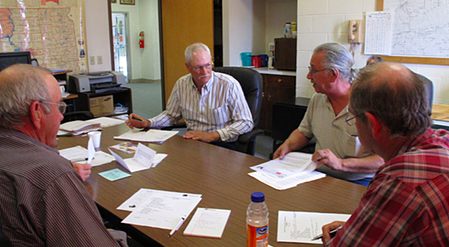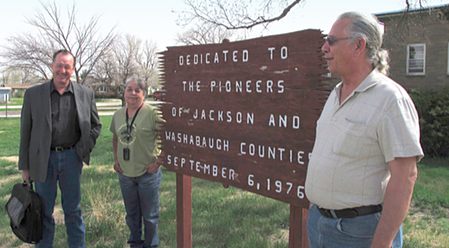2014: Partnerships Pay Off in Poor Bear v. Jackson County, SD
The Problem
Jackson County, South Dakota, still refused to open a satellite voting office in Wanblee, South Dakota, on the Pine Ridge Indian Reservation even after Four Directions persuaded the Board of Elections to cover all associated costs.
The Solution
Four Directions leveraged partnerships with the Lawyers’ Committee on Civil Rights Under Law and the Oglala Sioux Tribe, who then sued Jackson County for violating the Voting Rights Act and the U.S. Constitution.
The Four Directions Approach
Four Directions understands the most effective negotiations with state and local governments occur when we have the best alternative to a negotiated agreement. Our experience in the field, trusted relationships with Tribes, and legal partnerships always creates the option of litigation by others when negotiations fall apart. In this case, Oglala Sioux Tribe Vice President Thomas Poor Bear sued Jackson County with the support of Dechert LLP on behalf of the Lawyers’ Committee for Civil Rights Under Law. The U.S. Department of Justice has filed a Statement of Interest brief in the case that reinforces federal support for the legal test Four Directions has proposed.
The Result
Jackson County agreed to open a satellite voting office for the final two weeks of early voting, but the Lawyers’ Committee for Civil Rights Under Law is fighting for a permanent solution to make sure Native voters always have equal access to in-person early voting. So far, the District Court has rejected Jackson County’s effort to dismiss the lawsuit.
Wanblee residents may not have a nearby ballot box leading up to Election Day, but others in Jackson County do. Starting 46 days before national elections, residents of off-reservation county seat Kadoka, where the voting population is 84 percent white, can find no-excuse absentee voting and registration at the local courthouse.
Meanwhile, voters in Wanblee, a larger town with a voting population that’s 92 percent Native, would travel 54 miles round trip to register or cast a ballot at the courthouse. The difficulty of making the trip is worsened by lack of vehicles and gas money in isolated Wanblee and the area’s absence of public transportation, said Poor Bear: “The county allows non-Indians to vote early, while preventing Indians.”
STEPHANIE WOODARD, INDIAN COUNTRY TODAY MEDIA NETWORK, 9.25.14
Partners

“As OJ Semans, head of Four Directions voting rights group, often tells us, you can’t give one group 46 days to vote and another just one day and call it equal,” said plaintiffs’ attorney Eileen O’Connor, of Lawyers’ Committee for Civil Rights Under Law.
STEPHANIE WOODARD, INDIAN COUNTRY TODAY MEDIA NETWORK, 5.12.15


US Attorney scolds county on voting law
JOHN HULT
SIOUX FALLS ARGUS LEADER; 1.3.15
Jackson County Sued over Native American Voting Issues
KETTI WILHELM
ASSOCIATED PRESS; 9.18.14
Oglala VP: ‘Our civil rights are being violated’
STEPHANIE WOODARD
INDIAN COUNTRY TODAY MEDIA NETWORK; 9.25.14
Native Voting Plaintiffs Got It Right, Says DOJ
STEPHANIE WOODARD
INDIAN COUNTRY TODAY MEDIA NETWORK; 1.12.15
Federal Judge Moves Wanblee Voting Case Forward
CHARLES MICHAEL RAY
SOUTH DAKOTA PUBLIC BROADCASTING; 5.4.15
Judge won’t dismiss Indian voting rights case in South Dakota
NATIVE SUN NEWS; 5.5.15
